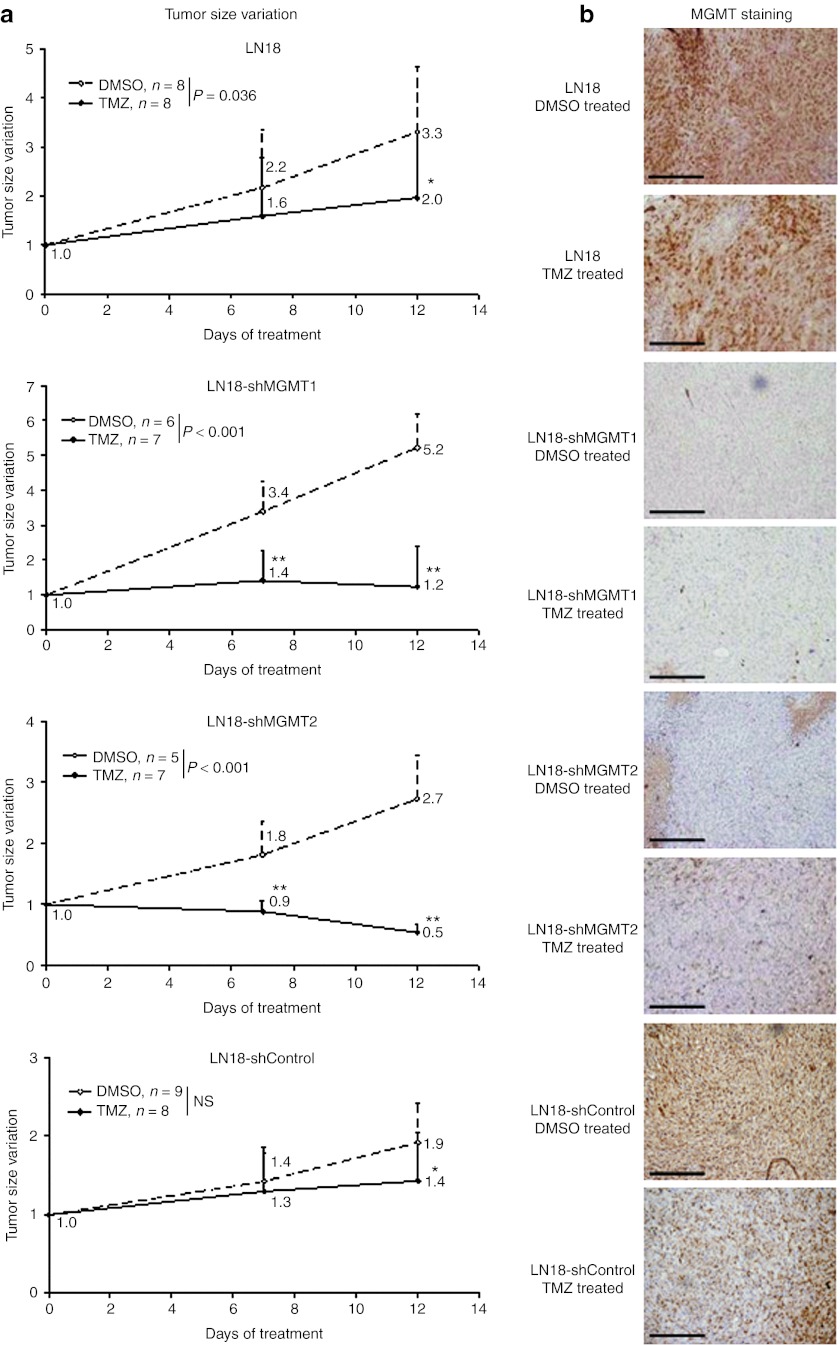Figure 3.
O6-Methylguanine-DNA methyltransferase (MGMT) inhibition enhanced the sensitivity of human LN18 glioma xenografts toward temozolomide (TMZ) in vivo. (a) Nude mice were xenografted (two xenografts per animal) with LN18 wild-type cells (obtained: ntumor = 16 in nmice = 15), as well as LN18 cells stably expressing the shMGMT1 (obtained: ntumor = 13 in nmice = 7), shMGMT2 (obtained: ntumor = 12 in nmice = 8) and shControl RNA sequences (obtained: ntumor = 17 in nmice = 9). When tumors reached a size of ~200 mm3, mice were divided in two groups and treated with TMZ or dimethyl sulfoxide (DMSO). Tumor sizes were evaluated by caliper measurements and size variations upon treatment were plotted against the duration of treatment (a). At day 12, mice were sacrificed and the presence of MGMT in the xenografts was controlled by immunohistochemistry (b). All data are presented as mean + SD. Two-way ANOVA tests were used to analyze the differences between DMSO- and TMZ-treated tumors. Pair wise multiple comparisons were analyzed using the Holm–Sidak method (*P < 0.05, **P < 0.01). Bars = 200 µm.

